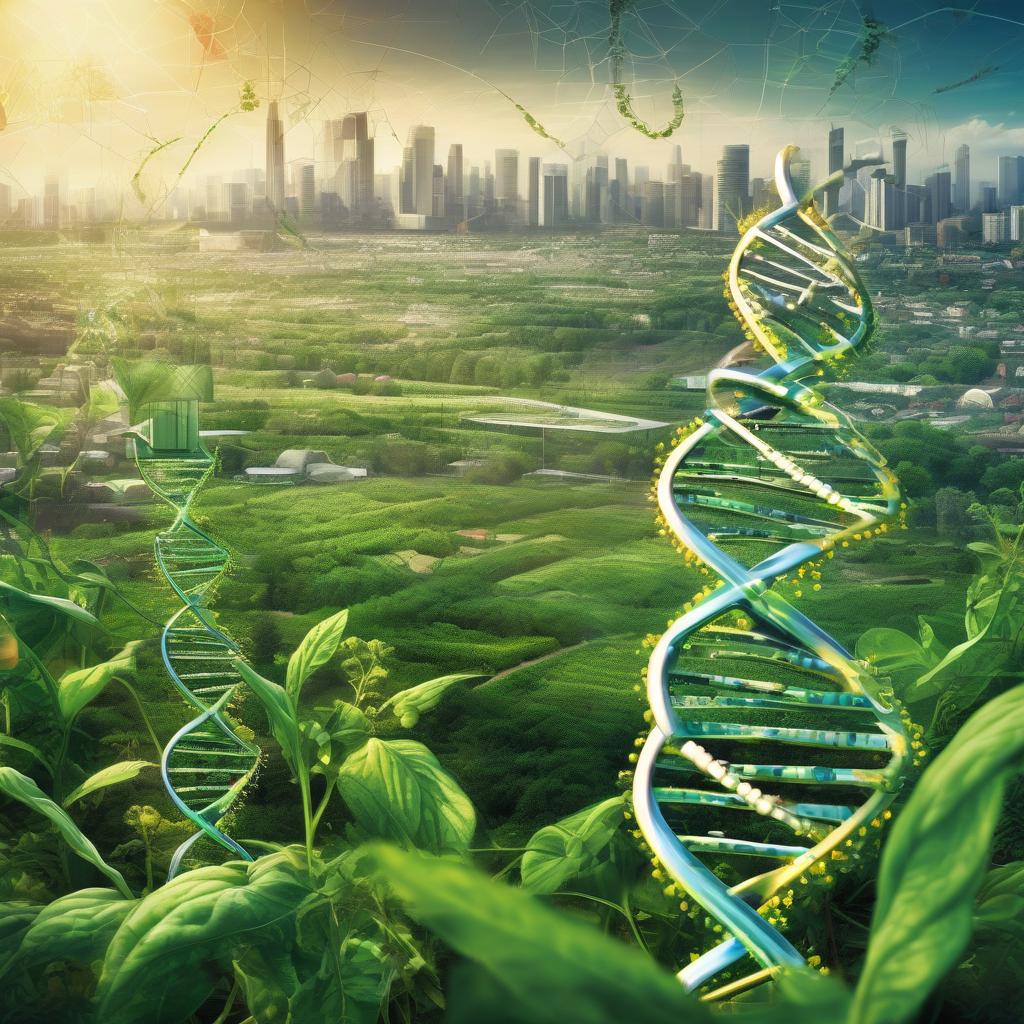Biotech, short for biotechnology, is one of those fields where science meets practical application in beautifully complex ways. It’s a fascinating blend of biology, technology, and innovation. Think about it: transforming healthcare, agriculture, and even environmental sustainability. The potential is immense, and it’s reshaping industries like no other. From creating genetically modified crops to developing groundbreaking therapies, biotech is doing all that and more. The impact on various sectors is pretty undeniable.
The Role of Biotechnology in Healthcare
One of the most significant areas where biotech shines is healthcare. With advances in gene therapy, personalized medicine, and even in creating vaccines, the industry is revolutionizing patient care. Biotech companies are developing treatments for rare diseases that were once thought untreatable. There’s also cancer research, where biotech innovations are making it possible to target tumors more precisely without harming healthy cells.
According to Forbes, biotech is transforming healthcare in the 21st century with its ability to tailor treatments to individual genetic profiles. This means therapies that are more effective and with fewer side effects. It’s like having a custom-made suit rather than one off the rack.
Gene Editing: CRISPR and Beyond
Ah, CRISPR. If you haven’t heard of it, you’re probably living under a rock. It’s one of the most talked-about tools in biotechnology today. This gene-editing technology allows scientists to modify DNA sequences with remarkable precision. Think of it as a pair of molecular scissors snipping away unwanted parts of our genetic code.
What’s cool is the potential applications—curing genetic disorders, improving crop resilience, even reviving extinct species. The implications for medicine are vast. We’re talking about eliminating diseases like cystic fibrosis and sickle cell anemia. Imagine a world where such genetic ailments are history.
Biotech in Agriculture: Feeding the World
Agricultural biotechnology is another crucial piece of the puzzle. With the global population rising, ensuring food security is more important than ever. Biotech plays a pivotal role by enhancing crop yields and improving resistance to pests and diseases. Those drought-resistant crops? Thank biotech.
Genetically modified organisms (GMOs) have been a hot topic, though. People have mixed feelings about them. Yet, the reality is they help farmers produce more food with fewer resources. The debate continues, but the benefits are hard to ignore. Crops that require less pesticide, withstand harsher climates, or have higher nutritional value are a win for everyone.
One glance at the BBC’s report on biotech in agriculture shows how these innovations are driving efficiency and sustainability in food production. It’s not just about feeding more people but doing so in a way that’s environmentally friendly.
Environmental Impact and Bioremediation
Biotech isn’t just about health and food. It’s also about cleaning up our mess. Bioremediation uses biological organisms to solve environmental problems. Picture bacteria that can digest oil spills or fungi that absorb heavy metals. It sounds like science fiction, but it’s happening.
This green technology is crucial for maintaining ecosystems and mitigating pollution. We have to be mindful of how we interact with our environment, and biotech offers some promising solutions. It’s about making sure the planet can sustain future generations.
Biotech’s Intersection with Cybersecurity
As biotech advances, so does the need for robust cybersecurity measures. It’s not just about protecting data but ensuring the integrity of biotechnological systems. Cyber attacks on biotech firms can have serious repercussions, from intellectual property theft to potential hazards in genetic research.
For those interested in diving deeper into how cybersecurity interfaces with biotech, this resource offers insights into the evolving challenges and solutions in safeguarding this innovative field.
The Ethical and Social Implications
We can’t talk about biotech without addressing the ethical concerns. Gene editing, GMOs, cloning—these topics stir up debate. There’s excitement about the possibilities, sure, but also fear about playing god. Are we overstepping? What are the long-term consequences?
Society needs to navigate these questions carefully. Ethical frameworks and regulations are essential to guide the responsible use of biotechnological innovations. It’s a balancing act between progress and precaution.
Biohacking: A New Frontier
Then there’s biohacking. It’s where DIY biology enthusiasts experiment with genes, often outside of traditional lab settings. Think of it as the tech startup culture applied to biology. There’s potential for innovation here, but also risk. Unregulated experiments could lead to unintended consequences.
Despite these concerns, biohacking represents a democratization of biotechnology, allowing more people to engage with science. It’s an exciting, albeit controversial, frontier.
Future Prospects: What Lies Ahead?
So, what’s next? Biotech is rapidly evolving, and the future is both exciting and uncertain. We might see more personalized medicine, crops that thrive in extreme conditions, and new forms of renewable energy. The industry is set to continue shaping our world in profound ways.
But with progress comes responsibility. It’s not just about what we can do, but what we should do. As we push the boundaries of what’s possible, mindfulness about ethical and environmental impacts will be key.
The conversation around biotech is far from over. It’s an ongoing dialogue, one that involves scientists, policymakers, and the public. As this field continues to expand, staying informed and engaged is crucial.
FAQs
- Is biotech safe? Depends on what aspect you’re talking about. Like any powerful technology, it has its risks. But with proper regulations, most biotech applications are safe and beneficial.
- What’s the deal with GMOs? They’re genetically modified organisms, often crops that are altered for better yield or resistance. Controversial? Yes. But they do help in feeding a growing population.
- How does biotech affect the environment? Positively and negatively. Bioremediation helps clean up pollutants, but some biotech methods could harm ecosystems if not carefully managed.
- Can biotech cure cancer? Not entirely, but it’s making huge strides in treatment. Personalized medicine and targeted therapies are where it’s really making a difference.
- What is biohacking? It’s like DIY biology, where enthusiasts experiment with genetic material outside of traditional labs. Fascinating for innovation, but it comes with its own set of risks.
Biotech is reshaping our world, and while it’s not without challenges, the potential benefits are vast. It’s a field worth watching, engaging with, and understanding as it continues to develop and influence our lives.




